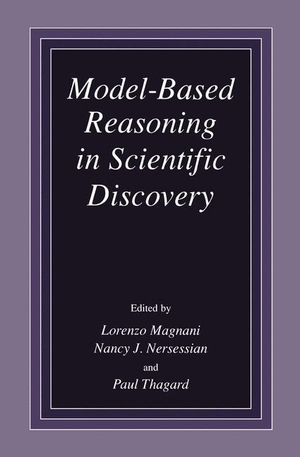Für statistische Zwecke und um bestmögliche Funktionalität zu bieten, speichert diese Website Cookies auf Ihrem Gerät. Das Speichern von Cookies kann in den Browser-Einstellungen deaktiviert werden. Wenn Sie die Website weiter nutzen, stimmen Sie der Verwendung von Cookies zu.
Cookie akzeptieren
Model-Based Reasoning in Scientific Discovery
- Springer US
- 2012
- Taschenbuch
- 360 Seiten
- ISBN 9781461371816
The volume is based on the papers that were presented at the Interna tional Conference Model-Based Reasoning in Scientific Discovery (MBR'98), held at the Collegio Ghislieri, University of Pavia, Pavia, Italy, in December 1998. The papers explore how scientific thinking uses models and explanatory reasoning to produce creative changes in theories and concepts. The study of diagnostic, visual, spatial, analogical, and temporal rea soning has demonstrated that there are many ways of performing intelligent and creative reasoning that cannot be described with the help only of tradi tional notions of reasoning such as classical logic. Traditional accounts of scientific reasoning have restricted the notion of reasoning
Mehr
Weniger
zzgl. Versand
in Kürze